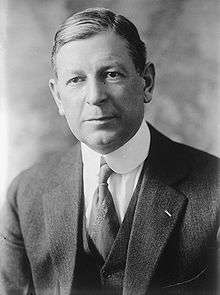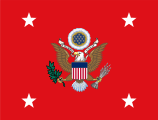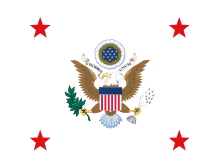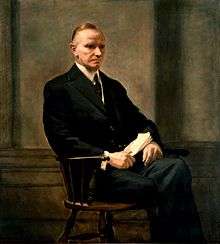Dwight F. Davis
| Dwight Filley Davis, Sr. | |
|---|---|
 | |
| 49th United States Secretary of War | |
|
In office October 14, 1925 – March 4, 1929 | |
| President | Calvin Coolidge |
| Preceded by | John W. Weeks |
| Succeeded by | James W. Good |
| United States Assistant Secretary of War | |
|
In office 1923 – October 14, 1925 | |
| Appointed by | Calvin Coolidge |
| Preceded by | Jonathan Mayhew Wainwright |
| Succeeded by | Hanford MacNider |
| Governor-General of the Philippines | |
|
In office July 8, 1929 – January 9, 1932 | |
| President | Herbert Hoover |
| Preceded by |
Eugene Allen Gilmore (acting) |
| Succeeded by |
Theodore Roosevelt, Jr. George C. Butte (acting) |
| Personal details | |
| Born |
Dwight Filley Davis July 5, 1879 St. Louis, Missouri, U.S. |
| Died |
November 28, 1945 (aged 66) Washington, D.C., U.S. |
| Political party | Republican |
| Education |
Harvard University Washington University Law School |
| Profession | Politician, tennis player |
|
Tennis career | |
| Full name | Dwight Filley Davis, Sr. |
| Born |
July 5, 1879 St. Louis, Missouri, USA |
| Died |
November 28, 1945 (aged 66) Washington, D.C., USA |
| Turned pro | 1895 (amateur tour) |
| Retired | 1902 |
| Plays | Left-handed (one-handed backhand) |
| Singles | |
| Highest ranking | No. 5 (1900, Karoly Mazak)[1] |
| Grand Slam Singles results | |
| US Open | F (1898, 1899) |
| Other tournaments | |
| Olympic Games | 2R (1904) |
| Doubles | |
| Grand Slam Doubles results | |
| Wimbledon | F (1901) |
| US Open | W (1899, 1900, 1901) |
| Other doubles tournaments | |
| Olympic Games | QF (1904) |
| Team competitions | |
| Davis Cup | W (1900, 1902) |
Dwight Filley Davis, Sr. (July 5, 1879 – November 28, 1945) was an American tennis player and politician. He is best remembered as the founder of the Davis Cup international tennis competition. He was the Assistant Secretary of War from 1923 to 1925 and Secretary of War from 1925 to 1929.
Biography
Dwight Filley Davis was born in St. Louis, Missouri on July 5, 1879.
He reached the All-Comers final for the Men's Singles title at the US Championships in 1898 and 1899. He then teamed up with Holcombe Ward and won the Men's Doubles title at the championships for three years in a row from 1899 to 1901. Davis and Ward were also Men's Doubles runners-up at Wimbledon in 1901. Davis also won the American intercollegiate singles championship of 1899 as a student at Harvard College.
In 1900 Davis developed the structure for, and donated a silver bowl to go to the winner of, a new international tennis competition designed by him and three others known as the International Lawn Tennis Challenge, which was later renamed the Davis Cup in his honor. He was a member of the US team that won the first two competitions in 1900 and 1902, and was also the captain of the 1900 team.
He participated in the 1904 Summer Olympics. He was eliminated in the second round of the singles tournament. In the doubles tournament he and his partner Ralph McKittrick lost in the quarter-finals.[2]
Davis was educated at Washington University Law School, though he was never a practicing attorney. He was, however, politically active in his home town of St. Louis and served as the city's public parks commissioner from 1911 to 1915. During his tenure, he expanded athletic facilities and created the first municipal tennis courts in the United States. He served President Calvin Coolidge as Assistant Secretary of War (1923–25) and as Secretary of War (1925–29). He then served as Governor General of the Philippines (1929–32) under Herbert Hoover. His first wife, Helen Brooks, whom he married in 1905, died in 1932.[3] He married Pauline Sabin in 1936. He wintered in Florida from 1933 until his death, living at Meridian Plantation, near Tallahassee.[4]
Davis died at his home in Washington, D.C. on November 28, 1945, after a six-month illness.[3][5]
Legacy
His daughter Alice Brooks Davis was married to the British Ambassador to the United States Sir Roger Makins.Another daughter Cynthia Davis was married to banker William McChesney Martin, Jr, the longest serving Federal Reserve director (1951-1970 who served under five presidents (Truman to Nixon).
Davis has been honored with a star on the St. Louis Walk of Fame.[6]
References
- ↑ Mazak, Karoly (2010). The Concise History of Tennis, p. 28.
- ↑ "Dwight F. Davis Olympic Results". sports-reference.com. Retrieved 2014-01-27.
- 1 2 Political Graveyard Genealogies
- ↑ "Davis Cup has local tie". Tallahassee Democrat, 6 December 2007: 3C
- ↑ "Dwight Davis Dies. War Ex-Secretary. Member of Coolidge's Cabinet. First Soldier to Hold Post Since '69. New Deal Foe. Donor Of The Tennis Cup. Former Champion Himself, He Created International Trophy. Hero of First World War. Succeeded John W. Weeks. Twice Double Champion. Sold Progress in Philippines". New York Times. Associated Press.
- ↑ St. Louis Walk of Fame. "St. Louis Walk of Fame Inductees". stlouiswalkoffame.org. Retrieved 25 April 2013.
External links
 Media related to Dwight F. Davis at Wikimedia Commons
Media related to Dwight F. Davis at Wikimedia Commons- Dwight F. Davis at the Davis Cup
- International Tennis Hall of Fame profile
| Political offices | ||
|---|---|---|
| Preceded by John W. Weeks |
U.S. Secretary of War Served under: Calvin Coolidge October 14, 1925 – March 4, 1929 |
Succeeded by James W. Good |
| Government offices | ||
| Preceded by Eugene Allen Gilmore |
Governor-General of the Philippines 1929–1932 |
Succeeded by Theodore Roosevelt, Jr. |
| Awards and achievements | ||
| Preceded by Plutarco Calles |
Cover of Time Magazine 15 December 1924 |
Succeeded by Alfonso XIII of Spain |



.svg.png)
